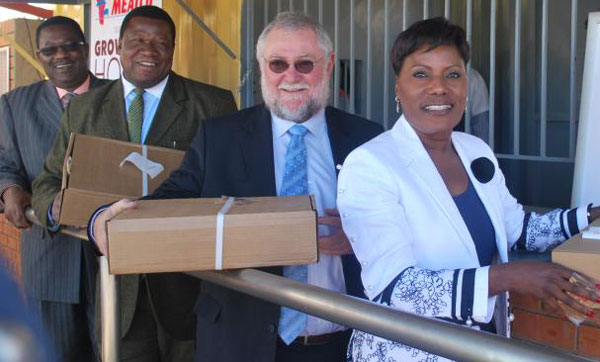
Electricity a national security risk
Diverse Energy, a London based energy company specialising in fuel cell technology says importing electricity is a serious national security risk which can be avoided by combining main grid power generation with micro grid generation.
In an exclusive interview, CEO Dirk Smet told The Economist that power blackouts experienced in India a few weeks ago should be a wake up call for Namibia.
He says: “Namibia is a net importer of electricity and the fact that you have no power dependence at all, for me is a serious national security issue.”
Smet adds that the notion that big is beautiful is no longer acceptable because when big fails, the consequences are very serious.
“If this can happen to a big country like India, we should start understanding that building big distribution networks doesn’t work. What is needed in Namibia is a proper energy white paper instead of building a power station. What if the power station goes down? You are back to square one!,” he quipped.
Nambia, Smet advises, should start using a combination between main grid and micro grid so that if the main grid goes down, there is still power available from the micro grid.
“You have to go for a balance of power. You still need the main grid because it is the most cost effective way of providing power for an urban area but once you go to the more remote areas, you have to spend so much tax payers money to bring power to that local community.
“It is cheaper to put up a micro grid and use the money that you would have spent with NamPower to go to the remote parts for better health care and better education.”
He says a micro grid which runs and serves a small local community can be based upon a diesel generator or solar, wind or fuel cells or a combination thereof. However, the most superior solution would be to encompass all elements.
Dr Mike Rendall, the Chief Technical Officer of Diverse Energy says diesel is very popular in off-grid power generation but is not the perfect solution going forward.
He says telecomms operators, particularly in southern African states, are having major problems with diesel because not only is it getting more and more expensive but also the maintanance costs are high. Diesel is also the target for thieves, often stolen from generator sites.
“These things (diesel generators) require a lot of maintenance, you have lots of people running around, daily fixing these things. This why you suffer network blackouts so what we want to do is replace all of that with our new solution, which is a powerful solution. This is a clean solution, there is no smell, no dirt, and more importantly, no diesel and no carbon emissions coming into the atmosphere, and it also makes water.”
Explaining the technology, Rendall said fuel cells convert hydrogen into electrical power and water. The technology is considered to be highly efficient and have minimal moving parts requiring minimal maintenance. Hydrogen can be supplied from conventional gas cylinders or more commonly made on site by a gas reformer. The gas reformer can be fed from a number of fuels including; ammonia, methanol and propane. A fuel cell system can be entirely load following and will generate power as and when required.
The main downside of the fuel cells technology is that it is limited in the volume of power it can provide.
“If you say we need a 10 Kw installation, we will have a problem to meet that cost effectively. Under 2 Kw we can meet that very cost effectively, there we beat diesel hands down. Once you go to 10Kw, the diesel solution is so efficient that we cannot compete with that at this stage. So there is still a long way to go in the higher power output to make it more cost effective,” says Smet.










































